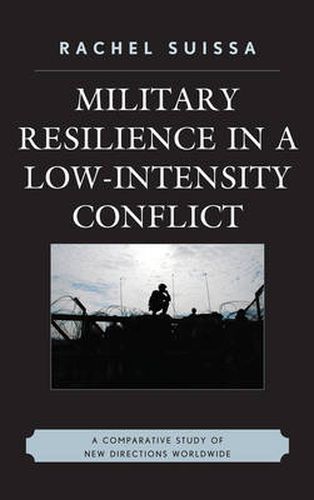Readings Newsletter
Become a Readings Member to make your shopping experience even easier.
Sign in or sign up for free!
You’re not far away from qualifying for FREE standard shipping within Australia
You’ve qualified for FREE standard shipping within Australia
The cart is loading…






Military Resilience in a Low-Intensity Conflict: A Comparative Study of New Directions Worldwide, by Rachel Suissa, offers a prognosis for the dilemma of army resilience in the post-modern era. She clarifies the concept of military resilience among the challenges of the twenty-first century, examining how the military model affects resilience, and how those effects are expressed during the management of a given conflict. She investigates the issue through a comparative study of armies and states which have been involved or are currently involved in low intensity conflicts-the countries discussed include France and Algeria, Great Britain and Ireland, Russia and Chechnya, and Israel and the Palestinian authority.
Another challenge that Suissa addresses is that of peace coalitions and their organizational resilience. She further discusses the connection between political and military ranks, and under which conditions the former affects the latter. Military Resilience in a Low-Intensity Conflict makes the issues associated with resilience and conflict accessible to both academics and those who might translate its findings into practicable insights.
$9.00 standard shipping within Australia
FREE standard shipping within Australia for orders over $100.00
Express & International shipping calculated at checkout
Military Resilience in a Low-Intensity Conflict: A Comparative Study of New Directions Worldwide, by Rachel Suissa, offers a prognosis for the dilemma of army resilience in the post-modern era. She clarifies the concept of military resilience among the challenges of the twenty-first century, examining how the military model affects resilience, and how those effects are expressed during the management of a given conflict. She investigates the issue through a comparative study of armies and states which have been involved or are currently involved in low intensity conflicts-the countries discussed include France and Algeria, Great Britain and Ireland, Russia and Chechnya, and Israel and the Palestinian authority.
Another challenge that Suissa addresses is that of peace coalitions and their organizational resilience. She further discusses the connection between political and military ranks, and under which conditions the former affects the latter. Military Resilience in a Low-Intensity Conflict makes the issues associated with resilience and conflict accessible to both academics and those who might translate its findings into practicable insights.